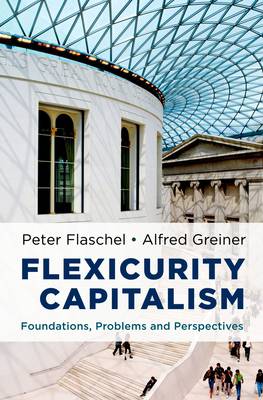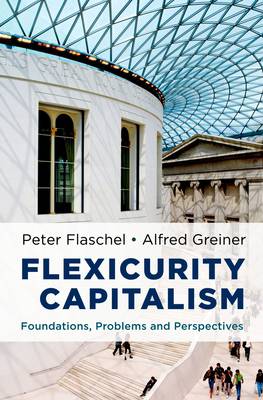
- Afhalen na 1 uur in een winkel met voorraad
- Gratis thuislevering in België vanaf € 30
- Ruim aanbod met 7 miljoen producten
- Afhalen na 1 uur in een winkel met voorraad
- Gratis thuislevering in België vanaf € 30
- Ruim aanbod met 7 miljoen producten
Zoeken
Flexicurity Capitalism
Foundations, Problems, and Perspectives
Peter Flaschel, Alfred Greiner
Hardcover | Engels
€ 177,45
+ 354 punten
Omschrijving
An intense debate has played out in recent years regarding how to implement a so-called "flexicurity system"-a labor market reform that combines flexibility, particularly in the hiring and firing process of firms, with security in the employment and income of the workforce. In Flexicurity Capitalism, Flaschel and Greiner lay out the macroeconomic structure of this system, providing the detailed mathematical models necessary to ponder seriously how such a system can work. Their book rests on three pillars of thought: Marx, Kalecki-Keynes, and Schumpeter. The authors highlight the relevant contributions from the work of each and build upon it. They in turn provide a basic framework for flexicurity capitalism and then compare their economic system to pure capitalism to determine the best and most practical way forward. Their scope is ambitious: to address the shortcomings of a narrow focus on mass unemployment, selective-schooling systems, property rights based solely on ownership without qualified business decision-making expertise, financial markets that do not of channel savings properly into real investment, and innovations that ignore human rights or moral sentiments. Flaschel and Greiner's Flexicurity Capitalism provides serious discussion and feasible mathematical models necessary to consider moving in this direction.
Specificaties
Betrokkenen
- Auteur(s):
- Uitgeverij:
Inhoud
- Aantal bladzijden:
- 240
- Taal:
- Engels
Eigenschappen
- Productcode (EAN):
- 9780199751587
- Verschijningsdatum:
- 11/04/2012
- Uitvoering:
- Hardcover
- Formaat:
- Genaaid
- Afmetingen:
- 163 mm x 236 mm
- Gewicht:
- 476 g

Alleen bij Standaard Boekhandel
+ 354 punten op je klantenkaart van Standaard Boekhandel
Beoordelingen
We publiceren alleen reviews die voldoen aan de voorwaarden voor reviews. Bekijk onze voorwaarden voor reviews.








